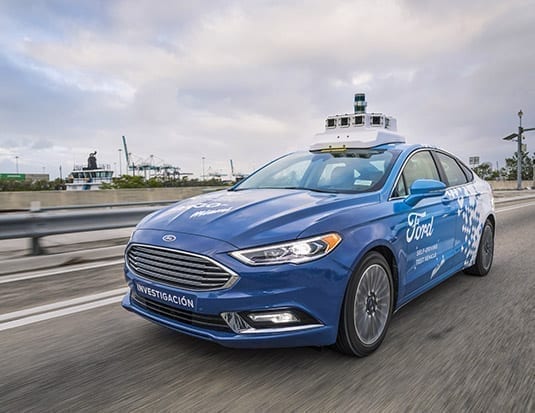When autonomous vehicles hit the road, tire companies will need to keep up.
Self-driving vehicles will change the way tires are engineered and made. Without a human being behind the wheel, tires will likely wear more evenly and last longer. In addition, tomorrow’s tires will also have to communicate with the vehicle and its integrated technology systems.
According to Dr. Christian Lerner, Global Vice President of Commercial Tire Technology for Continental, tires will need to become intelligent in order to communicate their health status.
“A driver is able to detect immediately some of the effects of a damaged tire, such as poor handling, noise, vibrations, and more,” Lerner explains. “Without a driver, the vehicle electronics need to compensate, or the tires need to identify potential damages.”
How it affects fleets
Eric Higgs, President, Truck, Bus and Retread Tires, U.S. and Canada, Bridgestone Americas Tire Operations, agrees with Lerner’s belief that tires will need to be engineered to be “long-lasting and highly durable” to meet the demands of autonomy.
He adds that “the monitoring systems for pressure, temperature and other factors will need to report comprehensive information back to the fleet manager in order to predict, and ultimately prevent or minimize, downtime.
“Long-lasting and highly durable are just a few of the key considerations. Along these lines, casing integrity will be paramount. We anticipate autonomous fleets will demand a casing that can withstand more uptime and be retreaded multiple times so fleets get the most out of their investment.”
“Without a driver, the vehicle electronics need to compensate, or the tires need to identify potential damages.”
Dr. Christian Lerner, Global VP, Commercial Tire Technology, Continental
With the move towards autonomy, consumers will also expect certain fleets (buses, taxis, etc.) to be able to provide uninterrupted service. That means fleets will look for resources, like tires, that will help improve the performance of their vehicles to keep them running more efficiently and for a longer period of time.
The autonomy trials
Self-driving vehicles will also present the industry with challenges. Higgs says that while autonomy highlights a more efficient mobility concept, and introduces an opportunity to keep fleets running 24/7, it’s important to understand that these changes will not happen overnight. Meaning that tire companies will have to try to keep up with the changing demands.
“The challenge comes when we all look for ways to increase uptime, while also using less energy and resources without sacrificing things like traction and rolling resistance,” Higgs explains. “Fleets use a variety of assets and systems from different manufacturers—and tires are no different. This is why intelligent, connected systems must be brand agnostic and give fleets the ability to integrate across different platforms.”
As an example, Higgs points to the IntelliTire system used by Bridgestone, which monitors and measures the performance across a tire’s full lifecycle. Because it is brand agnostic, the system can be applied to any kind of tire.
Lerner says Continental is working towards a digital tire monitoring solution to keep up with the demands of the markets. He says the key factor will be in determining how sensitive the steering needs to be.
“There’s a real opportunity to better predict costs while lowering the risk for downtime with intelligent tire management systems,” Higgs adds. “Capturing and sharing this information can enhance the way dealers service their fleet customers.
“No matter the business, the tie that binds us is the customer. We’re here to provide the right mix of product and service solutions that help our fleet customers meet their customers’ needs.”



